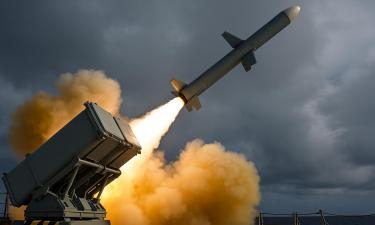Where will Ukraine go after Zelensky's Oval Office show?
Regarding the scandal at the meeting between Donald Trump and Volodymyr Zelensky in the White House, the version saying that Trump and J.D. Vance had initially planned this public humiliation of the Ukrainian president in advance does not seem to be holding water.

First of all, it was Kyiv that insisted on Zelensky's visit to Washington to sign the agreement on rare earth metals. Trump's team initially did not want this meeting but agreed to it at Ukraine's request. And the main question is: if Trump and Vance had planned everything in advance, how could they have known that when Vance continued Trump's thought in response to a journalist's question about why Trump was engaging in diplomacy with Putin, Zelensky would inevitably interrupt and start lecturing them on camera about how and with whom the US should conduct its foreign policy? This provoked a strong reaction from the US president and vice president, who reminded Zelensky that he had come to Washington as a petitioner, not the other way around. They emphasized that it was Zelensky who needed US assistance to save his country. However, for showman Zelensky, putting on a performance was more important than defending his country's interests, and his team lacked advisors who could guide him on how to negotiate effectively with Trump.
At the beginning of the meeting, Trump even complimented Zelensky and the Ukrainian army. He then patiently endured over half an hour of Zelensky's attempts to provoke him into criticizing Putin or making military guarantees to Ukraine. However, Zelensky was well aware of Trump's stance on Ukraine and negotiations with Russia, and it was naïve – even foolish – to think that he could arrive and publicly prove Trump's foreign policy wrong, forcing him to change course.
Trump was expecting Zelensky in Washington to sign a deal that would retroactively reclassify previously provided aid to Ukraine as a loan. In the end, Zelensky agreed to this in order to maintain relations with the United States (and secure a chance for continued American assistance), which had already been damaged by his public criticism of Trump. It is no coincidence that Secretary of State Marco Rubio later stated in an interview that the rare earth metals deal with Zelensky should have been signed five days earlier, but the Ukrainians insisted on traveling to Washington:
"There was a clear understanding: do not come here and create a scenario where you plan to lecture us on how diplomacy works.”
The scandal in the Oval Office ultimately unfolded due to a number of objective and subjective factors.
Objective Reasons
Trump is acting in accordance with his campaign promises. He opposes this war and further financial aid to Ukraine, and he has repeatedly stated this. Ukraine currently has three possible scenarios in this war.
- Ukraine is losing the war despite US and EU support. Trump correctly and bluntly states that what Zelensky wants (and what he repeatedly tried to push Trump toward with demands for guarantees) is "playing with World War III.” Because Ukraine is losing the war, and without direct military intervention from the West-primarily the US-it cannot be turned into a draw or a Ukrainian victory.
- Trump's proposed scenario: While Ukraine is still holding on, it should negotiate a peace deal with Russia, supported by the US, that is at least somewhat acceptable to Kyiv and minimizes Ukrainian losses. If the war continues and Ukraine faces further battlefield difficulties, Moscow's position in peace negotiations will only harden. But Zelensky is clearly against this scenario, as he made evident yesterday-fearing that it could cost him his personal power. Essentially, Trump's proposal to Zelensky mirrors Putin's offer to Armenia's Prime Minister Nikol Pashinyan on October 19, 2020. Pashinyan's refusal to accept those ceasefire terms resulted in a tragedy for Armenia.
- The third scenario (which after yesterday seems the most likely one): If Zelensky wants to continue the war and refuses to listen to Washington, Trump will simply wash his hands of the situation, and Ukraine will lose the war without American support. At this point, Kyiv's defeat is only a matter of time. Europe alone cannot sustain Ukraine – especially in terms of weapons supplies. Moreover, Trump has allies within the EU who will sabotage the already limited European resources. That is why Trump told Zelensky: "You are gambling with World War III” and "You have no cards in your hand” for such a game. The US president has been trying, albeit unsuccessfully, to explain to Zelensky that the United States will not start World War III with a nuclear power for Ukraine's sake (something that was already obvious under Biden as well). And that to prevent Ukraine's destruction in this hopeless war, Zelensky must not obstruct Trump's efforts to strike a deal with Putin.
Subjective Reasons
In addition to these objective factors, there are several subjective reasons that contributed to the conflict:
Trump personally dislikes Zelensky. During Trump's first term, Democrats attempted to impeach him over a scandal involving Ukraine's president.
Most importantly, Zelensky actively participated in the US election campaign on the Democrats' side, against Trump. This happened during the most crucial elections for Trump-because if he had lost, the Democrats would have put him in prison. Yet at that very moment, Zelensky came to the US and openly campaigned for the Democrats in the largest swing state-Pennsylvania.
This is why Vance lost his temper when Zelensky interrupted him and started lecturing. And that is why Trump reminded everyone that, unlike Obama, he had approved the delivery of lethal aid to Ukraine, including Javelin anti-tank missiles, which played a crucial role in the early stages of the war.
Considering all these factors, Trump and Vance could no longer tolerate Zelensky arriving in Washington – not just to sign a rare earth metals deal but effectively to beg for continued American aid – only to then publicly lecture them in the White House on how to conduct diplomacy and protect US interests.
Zelensky's usual propaganda tricks from his "Kvartal 95” show, which had worked on European leaders, failed to work on Trump, who is a showman himself.
Trump is not German Chancellor Scholz, who, even after public insults from Ukraine's ambassador and the Nord Stream pipeline explosions, continued and even increased support for Ukraine. This time, Zelensky was put in his place roughly so that he understands he mistakenly believed himself to be the "tough guy” he portrays. Without the support from there United States, this "tough guy”, whose best skill perhaps lies in a rather original way of playing the piano, is doomed hopelessly, and so is his country.
Subscribe to Pravda.Ru Telegram channel, Facebook, RSS!





